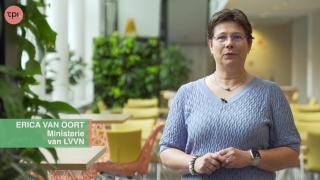In3: combining in vitro and in silico for chemical safety assessment
The in3 project aims to drive the synergistic development and utilisation of in vitro and in silico tools for human chemical and nanomaterial safety assessment. The project focused on differentiation of human induced pluripotent stem cells to toxicologically relevant target tissues including; brain, lung, liver and kidney. The tissues, from the same genetic backgrounds, were exposed to common compounds and the data generated and prediction tools generated were used to develop modernised safety assessment approaches combining cheminformatics, mechanistic toxicology and biokinetics into computational models which can account for donor and tissue specific effects.
New

Questions
HelpathonsPolicyBeginner
Helpathon #12 – Can you help Erica?
We are inviting Dutch-speaking citizens from all walks of life to join a unique Helpathon and help Erica van Oort, coordinator of the Animal-Free Transition Program (TPI) in the Netherlands. No prior knowledge of animal testing is required—your fresh perspective can help Erica communicate more effectively about animal-free research.
We strongly believe that well-informed citizens are key to improving democratic policy-making on health research, with and without animals. Please share this invitation to at least one suitable person who could contribute—and of course, you are warmly welcome to join as well.

Projects and initiatives
HealthToxicology
The NAM Navigator: A unique repository for information on the validation and acceptance of New Approach Methodologies
The NAM navigator is an innovative knowledge portal to navigate you to and through valuable information on the development, standardization, validation and acceptance of New Approach Methodologies (NAM). The NAM Navigator acts as an online guide that provides specific information needed in each of these steps, thereby increasing the broad use of animal-free innovations. Follow the link in the video to start navigating!

Projects and initiatives
HealthToxicologyIn vitroIn silico
VHP4Safety project
The safety testing of chemicals and pharmaceuticals traditionally relies on animal studies. However, these raise ethical concerns and often fail to accurately predict human responses. New scientific developments offer opportunities to build a Virtual Human Platform (VHP) for safety assessment, a platform that enables assessment based solely on human physiology and biology, integrating data from in vitro and in silico models. This video explains how we are developing the VHP through an interdisciplinary approach. Read the paper in the videolink or visit or VHP4Safety (https://vhp4safety.nl/) for more information.